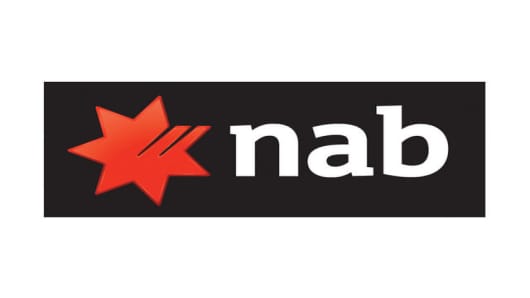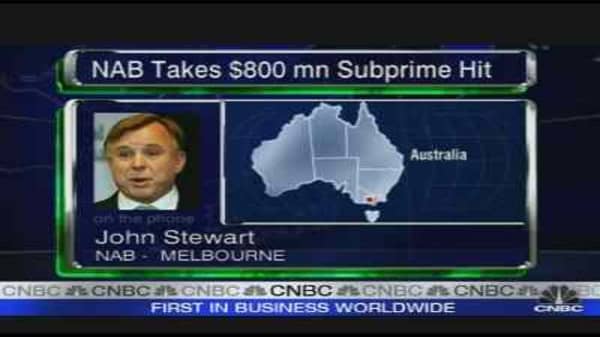Its shares fell as much as 12.7 percent to A$26.81, set for their biggest one-day percentage fall since September 2001. That compared with a 2.4 percent fall in the wider market.
"It's certainly very disappointing in light of what we were told at the half-year results," said Mark Nathan, fund manager with Fortis Investment Partners, before a highly charged briefing where analysts repeatedly questioned the bank's asset quality.
Australian banks have largely avoided the worst of the global credit crisis but bad-debt charges are rising as many highly geared Australian firms have struggled to refinance their debts.
NAB said total provisions against its holding of distressed U.S. mortgage-backed securities had risen to A$1.01 billion, the highest among Australia's top four lenders.
"This provision reflects the unprecedented conditions in global credit markets and, in particular, the rapid deterioration in the United States housing market," Stewart said.
"The continued deterioration in the U.S. housing market has been further highlighted in recent weeks with foreclosures mounting and recovery rates from security in some categories falling to less than half of the loan value," he added.
When asked about a UK newspaper report that NAB and U.S. investment bank JP Morgan were interested in buying assets of British bank HBOS, Stewart said his firm would have made a public statement if it was active in such a consortium.
"We're not sure this is a clever time to make acquisitions," Stewart told a media briefing.
NAB said its final dividend would not be affected by the new provisions and that it would stick to a payout ratio of around 70 percent of earnings.
Investors have been lured to Australian banks due to their attractive dividend yields.
NAB purchased the CDOs as part of its plans to provide its customers with access to international debt markets. It stopped buying the CDOs in March 2007.
The bank conceded the downturn in U.S., UK and European economies could affect Australia, and said demand for credit in its home market had slowed very quickly, but said that the rest of its loan book was in good shape.
"There are no real signs of stress in our other banking businesses," Stewart said, adding there were no plans to mount a rights issue and that the latest provision might only dent its tier-one capital ratio by around 20 basis points.
But the market was sceptical.
"One hopes there is nothing more lurking," said Eric Betts, equities strategist at Nomura Australia. Australian banks' funding costs have also risen amid the global credit squeeze, squeezing their margins and prompting them to lift their mortgage rates to around 9.5 percent.
Core inflation in Australia has accelerated to its fastest annual pace in 17 years as the cost of fuel, financing and rents all climbed, suggesting interest rates would stay high for some time to come, crimping loan demand.
NAB's announcement pulled down rest of the banking sector.
Second-ranked Commonwealth Bank of Australia fell 5.2 percent, Australia and New Zealand Banking Group, the third-biggest, lost 5.5 percent and Westpac Banking Corp dropped 4.2 percent.




